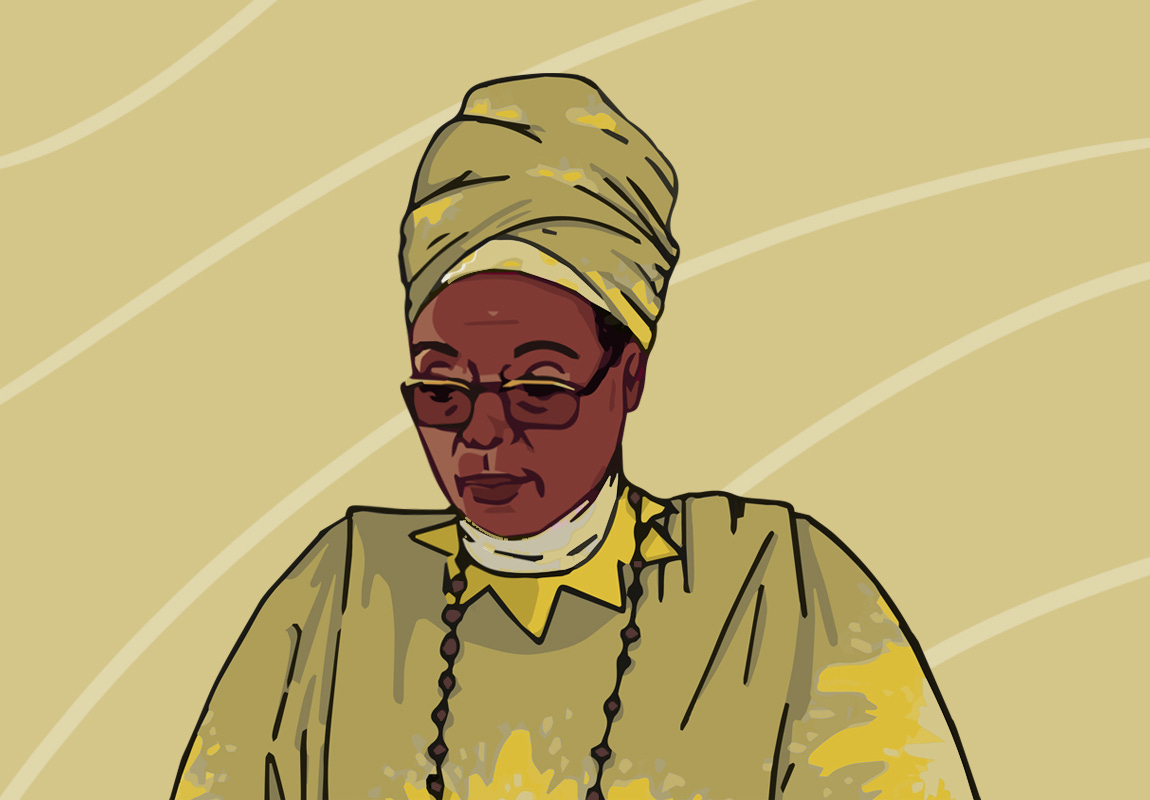Aoua Kéita : First woman elected to the Mali National Assembly
Aoua Kéita was a politician, writer and an independence activist in the former French Sudan, now the Republic of Mali. She campaigned for women’s participation in the politics and became the first woman elected to the Mali National Assembly.
Aoua Kéita was born on July 12, 1912, in Bamako, a small town in French Sudan. She was the daughter of a French-educated laboratory worker hailing from an influential Kéita family. The family was believed to be the descendants of Sundiata Kéita, one of the founders of the 13th-century Malian Empire.
In 1923, Kéita was accepted into the city’s first girls’ school. After schooling, she attended the Dakar School of Medicine to study midwifery. She graduated in 1931. When she started practising midwifery, she was one of few professional women in her country.
In 1935, Kéita married M. Diawara, a doctor with whom she had shared work in French Sudan. Both of them were educated and politically sophisticated. They wanted to base their marital relationship on social and political equality. However, in French Sudan, it was a custom for an older female to witness the first intercourse of the newlyweds and to assist groom in case bride resisted. When a female relative showed up on their room in the wedding night to perform her duty, Diawara put the woman out of the door. This created a scandal and exposed the young couple to severe criticism.
After marriage, Kéita grew increasingly interested in politics. By that time, Italy had already tried twice to gain control a part of the African continent by colonising Ethiopia. In 1935, Benito Mussolini, the Italian dictator, made a third attempt and was successful in gaining control. Kéita and her husband viewed Italian dictatorship as another form of bankrupt European rule. They believed that Europeans should be ousted from the African continent.
Kéita and her husband joined Union Sudanaise du Rassemblement Démocratique Africain (USRDA). After that, their days became filled with political meetings. Kéita’s work as a midwife was crucial as it helped her spread the political word. Women who came to her house learned about voting and national independence in addition to birth and delivery. Her position among women had strengthened as the mothers and families of the babies she successfully delivered became extremely loyal to her. Her work helped her to gather huge amount of support for USRDA.
In 1946, USRDA’s years of effort culminated in the first elections in which women of the Sudan were allowed to vote. Kéita campaigned vigorously for USRDA. However, they couldn’t win. Still their organisational skills were noticed at a national level.
Kéita and her husband got divorced after 13 years of marriage. The divorce was more liberating for her as he came out of her husband’s shadow. She assumed a grater role in politics and advocated for various issues including health reform. She believed that health reform is critical to the improvement of women in the country.
In 1959, Aoua Kéita ran as a USRDA candidate from the region of Sikasso.
In 1957, along with Aissata Sow, Kéita founded the Union of Salaried Women of Bamako. This organisation gave professional women a voice in the political sphere. She also helped establish the Federation of Black African Workers, or UGTAN (Union Générale de Travailleurs de l'Afrique Noir), which represented both male and female African workers.
When French Sudan inched closer to independence, Kéita was asked to help draft a constitution for the Mali Federation in 1958. In the same year, she also organised the Bamako Women's Bureau which became another political vehicle for representing the interests of women to the USRDA party.
In 1959, Aoua Kéita ran as a USRDA candidate from the region of Sikasso. She won the elections and became the first woman deputy elected to the national assembly of Republic of Mali. In 1968, when the first president was imprisoned in a coup, Kéita left the government. She returned to Bamako and wrote her autobiography Femme d'Afrique (African Woman).
Aoua Kéita died on May 7, 1980. Even though she was non-militant by nature, she became a radical feminist in promoting the rights of women in the French Sudan.


